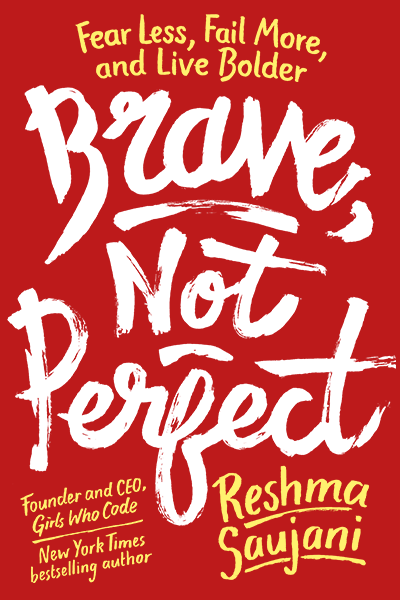“If life were one long grade school, girls would rule the world.”
This famous quote by Carol Dweck hits hard for all of us who were primed to be perfect girls. Of course, she’s right: in school, the quest for perfection may have served us well, but in the real world, there are no straight A’s. Inevitably, we grow up and discover very quickly that the rules have changed; suddenly, everything we’ve been taught backfires. The very same behaviors that used to pay off—like being nice, polite, and agreeable—suddenly end up costing us big-time, both literally and figuratively.
Playing nice doesn’t get us the promotions or positions of power—and it certainly doesn’t get us raises. Minding our manners and staying quiet leaves us feeling queasy knowing that we didn’t call foul when a colleague took credit for an idea that was ours. Being sweet and ultrameticulous may earn us gold stars in the classroom, but by the time we hit the real world, those stars aren’t exactly raining from the sky.
I once met a woman at a conference in California who asked me, “How can I not strive to be perfect, when the world rewards perfection?” My answer to her was that maybe high school or college rewards perfection, but the real world rewards bravery.
It’s easy to tell ourselves that we’re aiming to be perfect because we have high standards and want to excel. What could be wrong with that? But the truth is we can be excellent without being perfect; they aren’t one and the same.
Perfection is an all-or-nothing game; you either succeed or fail, period. There are no small victories, no “A” for effort. If you’re a perfection seeker and you fail at anything, it can really take you out.
Excellence is a way of being, not a target you hit or miss. It allows you to take pride in the effort you put in regardless of the outcome. I’ll be the first one to tell you that it’s great to have high personal standards. There’s nothing wrong with having a healthy desire to excel, even to win. What’s not okay is setting impossible goals and expectations or beating yourself up if you don’t get the ideal results.
Sadly, it is still true that women need to work twice as hard to earn the same respect as men in their work. Being the ultimate overachievers, most of us take that to mean that to succeed we need to not just be excellent—we need to be perfect. The problem is that perfection doesn’t get us ahead. In fact, it sabotages us in more ways than we even realize.
A study released in 2015 from LeanIn.org and McKinsey & Co shows that women don’t step up to positions of senior leadership not because of family obligations, but because they don’t want the stress and pressure that comes along with that level of responsibility. I believe this is true, but I think this disproportionate stress arises in part because women think they need to do the job perfectly.
How many career opportunities have we passed up because we were afraid of being rejected or failing? How many times have we begged off an assignment or promotion saying, “I’m just not good at that”? No question that the glass ceiling and double bind are factors in women’s advancement, but I believe our perfect-girl hardwiring is also a significant part of the reason women are underrepresented in leadership positions in the corporate world, in government, and elsewhere. It’s the fear of exposing our less-than-perfect selves, or the belief that we don’t have the ideal leadership skill that interferes, not capability.
Our perfect-girl training has kept us safely isolated from the sting of rejection and failure, weakening our resilience to it in our adult life. The way we build back our resilience to failure is by exposing ourselves to it.
Display rejection letters on your refrigerator; they’re a mark of bravery. Do something you suck at, or something for which you feel entirely ill-prepared. Invite criticism. Talk about your screw-ups. Celebrate the proverbial B’s and C’s just as you would the A’s.
Don’t hide your mistakes in shame. It’s brave to reach for something out of your comfort zone, and even braver to let the world see when you fall flat on your face. By all means, share your successes, but also share the embarrassing oops and oh sh*t moments that got you there. My staff and I have started posting #failurefriday moments on social media to get this started . . . come join us.
When you face your fear, you take away its power.

Adapted from BRAVE, NOT PERFECT: FEAR LESS, FAIL MORE, AND LIVE BOLDER Copyright © 2019 by Reshma Saujani. Published by Currency, an imprint of Penguin Random House LLC.
Follow us here and subscribe here for all the latest news on how you can keep Thriving.
Stay up to date or catch-up on all our podcasts with Arianna Huffington here.


